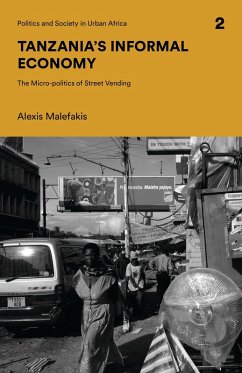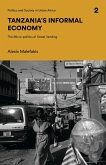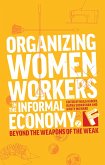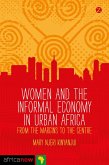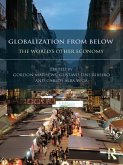The market places and street corners of Dar es Salaam are home to a thriving informal economy of street vendors selling secondhand clothing and other goods. These street vendors often live a precarious existence, under pressure from state authorities and international markets. In addition to these external pressures, the experiences of such vendors are also shaped by a complex interplay of internal tensions, rivalries and conflicting communal ties. Such internal dynamics are a common part of informal economies around the world, but have largely gone unrecognised and unexamined by academic scholarship.
Based on ethnographic fieldwork and extensive interviews with vendors living and working in Dar es Salaam, Malefakis's book offers a nuanced portrait of those trying to carve out a livelihood in a major African city, one in which ties of kinship and ethnicity are often viewed as a barrier, rather than an aid, to success. In the process, Malefakis provides an invaluable new perspective on the way in which co-operation, or lack thereof, functions in an informal economy, as well as insight into the lived experiences of those who depend on such economies.
Hinweis: Dieser Artikel kann nur an eine deutsche Lieferadresse ausgeliefert werden.
Based on ethnographic fieldwork and extensive interviews with vendors living and working in Dar es Salaam, Malefakis's book offers a nuanced portrait of those trying to carve out a livelihood in a major African city, one in which ties of kinship and ethnicity are often viewed as a barrier, rather than an aid, to success. In the process, Malefakis provides an invaluable new perspective on the way in which co-operation, or lack thereof, functions in an informal economy, as well as insight into the lived experiences of those who depend on such economies.
Hinweis: Dieser Artikel kann nur an eine deutsche Lieferadresse ausgeliefert werden.

